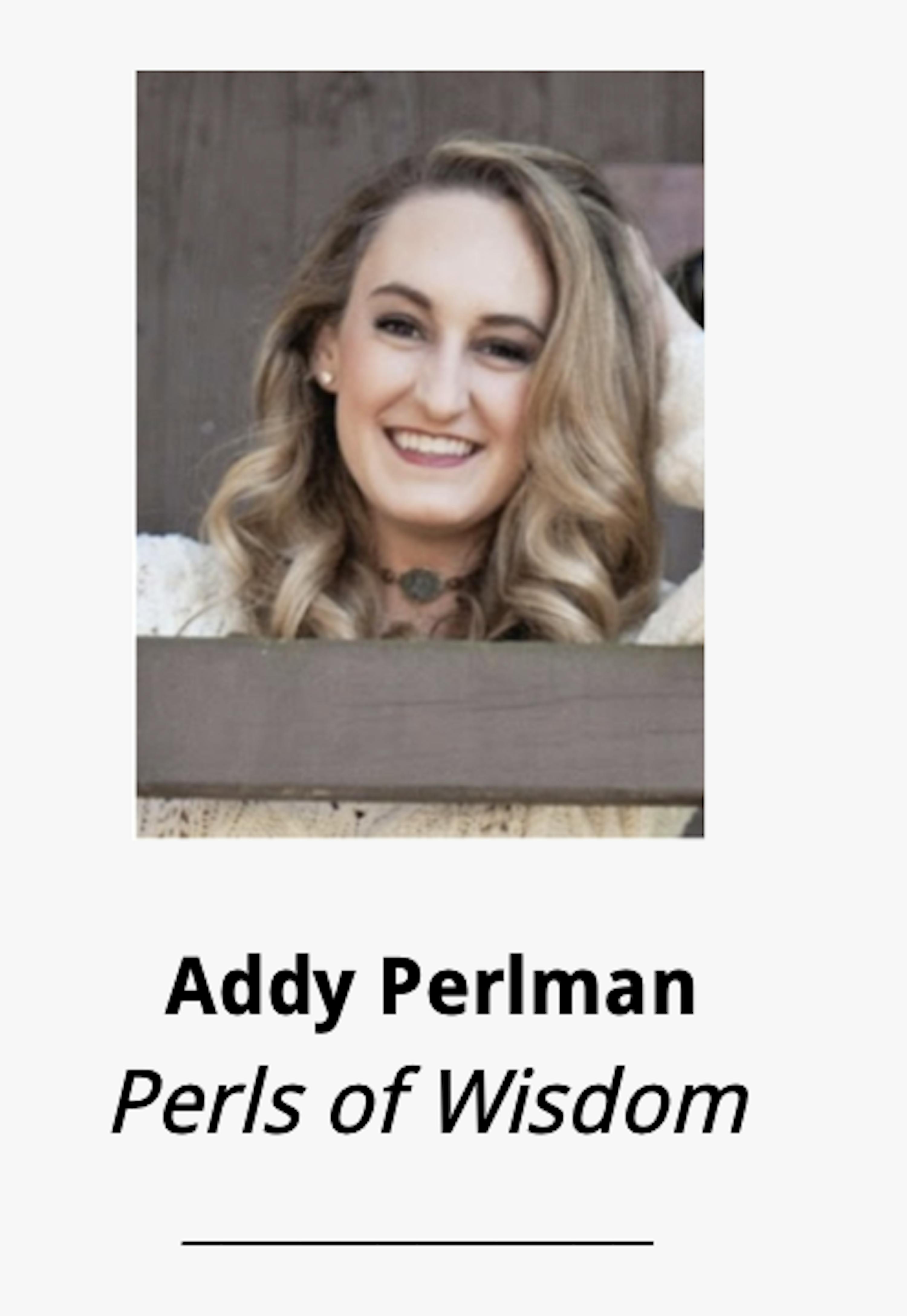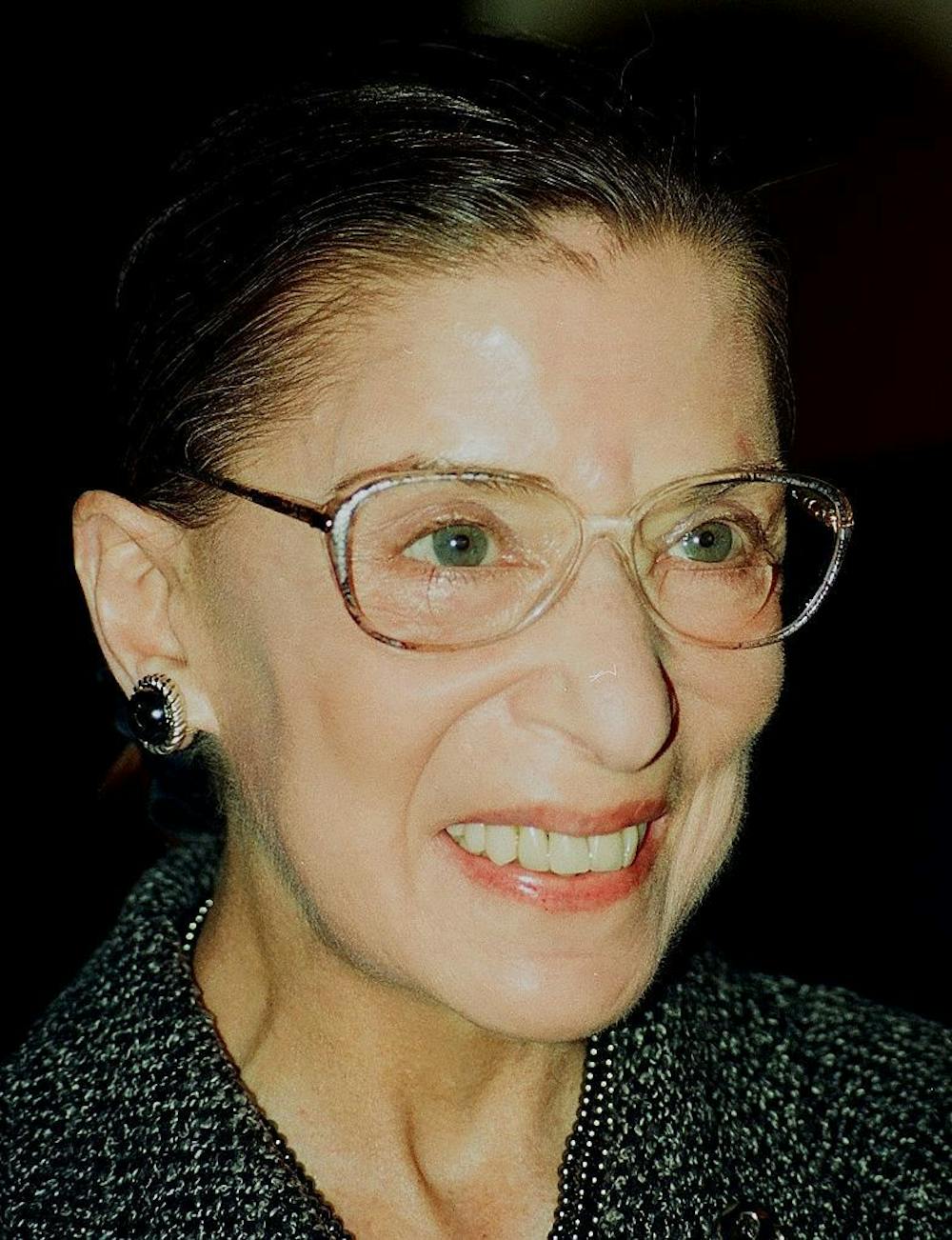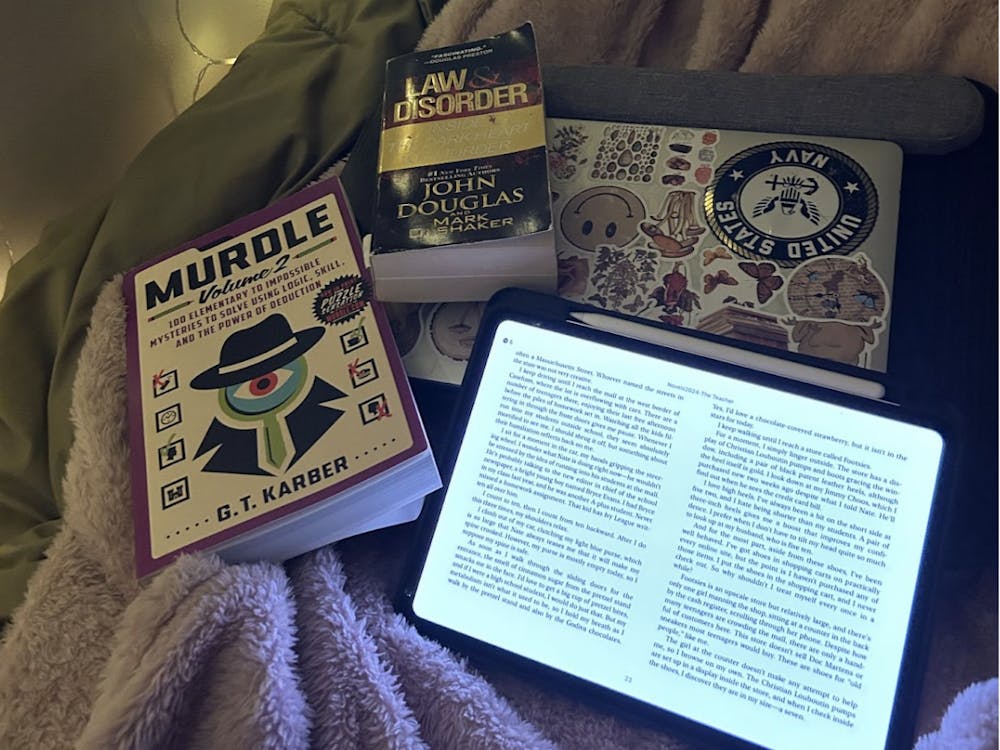
On Thursday, Sept. 24, my alarm blared at 5:30 a.m. Today I was going to pay my respects to Supreme Court Justice Ruth Bader Ginsburg.
The day before I had watched as mourners gathered in front of the Court to honor the incredible woman. I cried just like I had on Rosh Hashanah when I heard of her passing. I had to go. I had to be there. I knew I would always regret it if I wasn’t, so I messaged my friends to see who would join me. Three of them enthusiastically agreed as we felt we had to take advantage of our proximity to D.C. I couldn’t ignore my deep desire to go. I didn’t want to ignore it. I wanted to say thank you to the woman that continuously fought for justice.
I wanted to thank the woman who showed me that I didn't have to accept the gender roles that were so ingrained in the Southern town where I grew up. My mother and my grandmother are two examples of subverting stereotypical gender roles. My mom is a female business owner, and while my mother worked, my father stayed at home with me. My dad’s mother did the exact same thing. When her husband died, she took over their store downtown and supported her three boys. From the beginning I had two incredibly strong and independent Jewish women to look up to.
Because of my family, I had a different outlook on my place in the world. I remember a time in middle school when I cleaned up after a group of boys after a lunch meeting. As I was wiping down the table, I was told to get used to cleaning up after men because I would be doing so for the rest of my life. That’s what was expected of young women in my area. The rest of that day I felt a continuous anger.
I didn’t want to have my life constrained by these fixed, predetermined gender roles. After telling my parents about this little moment, my dad pointed me in the direction of Ginsburg and said, “Well, be like her instead.” When I was struggling with how my political beliefs differed from the majority in a small school in the South, she became my role model. She changed the way I viewed myself and who I could be. So I had to honor her.
That Thursday I hurried to Nine East to pick up my three friends. As we got into the Uber, what we were about to do sunk in. I didn’t know how to act. I wanted to be friendly and chat, but I was overwhelmed by an intense sadness. I needed to feel the silence, so I tried to make conversation and joke every now and then, but we all felt the weight of our trip beneath the words we were saying. As we boarded the train, I thought about the rocks I had brought to honor the practices of Jewish mourning. They were increasingly noticeable in my bag as we neared D.C., as were the feelings we had about our journey.
My thoughts passed as quickly as the trees outside the window. They blurred into nonsensical globs, and as the train came to a halt an hour later, I met the D.C. air with a mixture of emotions. We could no longer mask our sadness with light conversation. We had to confront what we were about to do, but we had no idea what we were walking into.
Dressed in black, I headed to the Supreme Court with my friends to say thank you and goodbye to Ginsburg. As we headed to the steps that we had seen in the news, we looked around for instruction, but we were met with a lack of information. We finally found the entrance of the line to pay our respects, and we were shocked at the number of people there. I felt an overwhelming sense of unity. Mothers brought their little girls; one set of grandparents brought their granddaughter, who was partaking in her Zoom class while waiting in line. Everyone was there to honor Ginsburg and her tireless efforts to change the course of history for women.
Then all of a sudden the line stopped moving. Trump had arrived. The respectful silence reserved for Ginsburg turned into an uproar of booing and chanting. We all yelled at the top of our lungs; knowing that he had to stand there and take that was invigorating.
The crowd seemed to turn into one live being. Voices melded together. It was powerful. One woman who traveled from the West Coast said her daughter could hear us on television. The crowd grew louder. We were being heard. He cut his visit short and left knowing we didn’t want him there or in office. Once he was gone, the respectful silence settled over the crowd once more.
My friends and I made our way through the line, and then we were on the steps. I have no way to describe what I felt. In some ways I don’t want to try. I want to keep that feeling to myself — keep those emotions raw and untouched. I know it is a moment I will remember for the rest of my life.
Last time I was on those steps, I met Justice Sandra Day O’Connor, and she told us fifth-grade girls that if she could do it, we could too. Now I was here to honor Ginsburg, the first Jewish female justice. As a Jewish woman, I brought rocks to honor her. I brought some for my family as well since they couldn’t be there. We have always practiced the tradition of placing rocks because they never die. Ginsburg was proud of her Jewish faith and heritage, and she makes me proud to be a Jewish woman. I will never forget the moment that I thanked my hero. Zikhronah livrakha.





